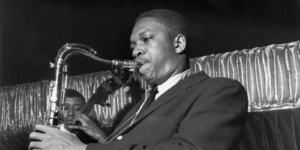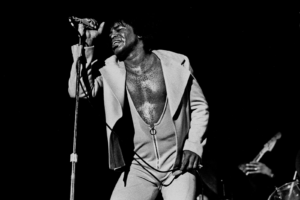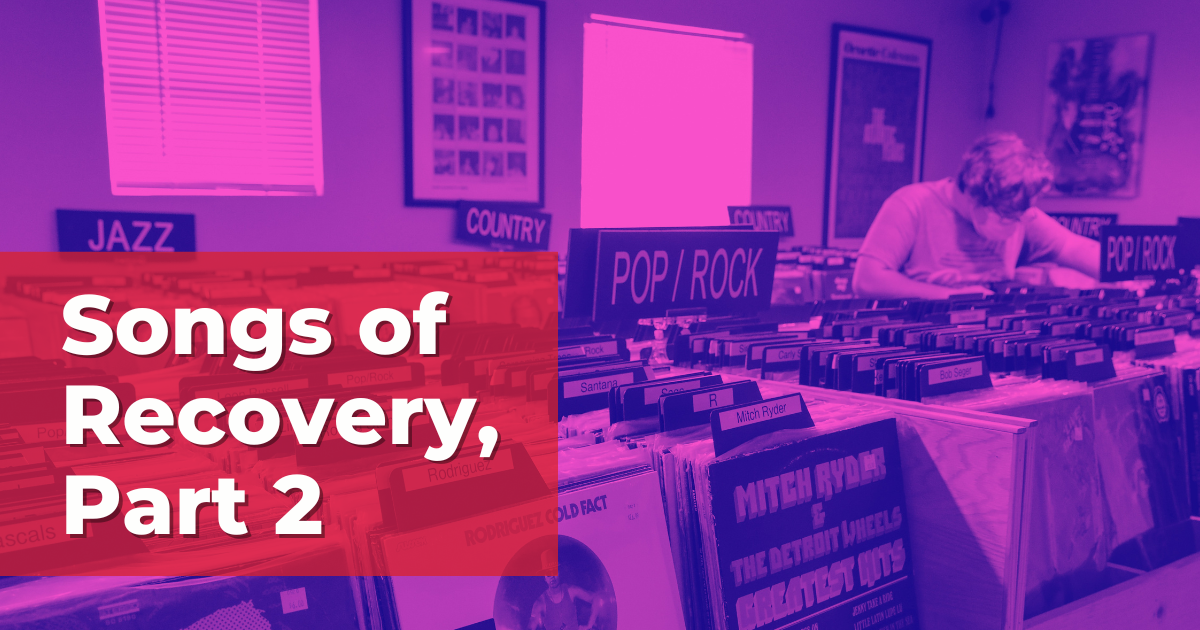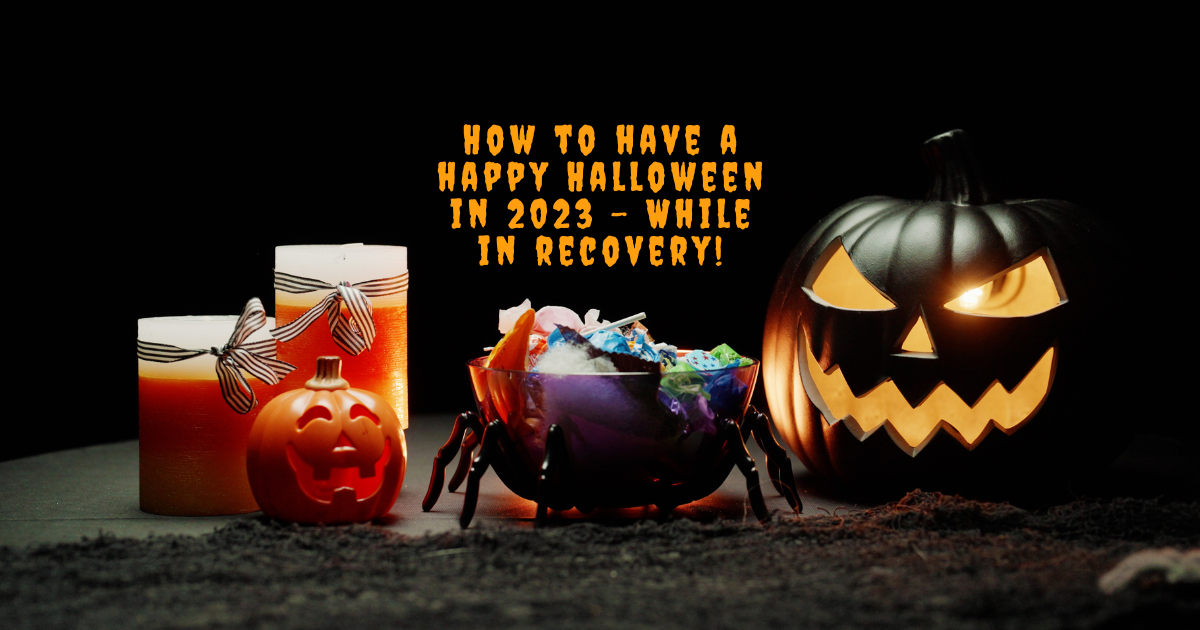We previously shared a list of notable songs by Grammy-winning artists that pertained to addiction recovery or past drug use. Here’s a new set of five tunes that explore substance use, and express the mindset of their makers, all of whom had personal experiences with drug or alcohol addictions. These songs reveal deep truths about artists we love and admire. We find them thought provoking, inspiring and just plain good to hear.
Substance use is complicated and personal. Music can be an effective way of expressing the feelings and thoughts around addictions. The artists on this list all convey their experiences in a unique way. We hope that by sharing this list we can tell a series of stories that encourage anyone dealing with a substance use disorder to get help.
John Coltrane – “A Love Supreme”
The year was 1948 and John Coltrane, the jazz saxophonist, was blowing up. Coltrane had just discovered what heroin was and his life was never the same again as this addiction would put him in almost ten-year battle against it. Once 1955 rolled around, Coltrane, still in the throes of his heroin addiction, had joined Miles Davis’s band with other notable musicians in what became known as the “First Great Quintet.” In 1957, the First Great Quintet broke up due to Coltrane’s all-encompassing heroin addiction, swallowing his life and destroying the artistic skill he clearly possessed.
An inimitable artist that would go on to create some of the greatest works in jazz history, Coltrane had suffered from an on-and-off heroin addiction for almost a decade before having a religious experience in 1957 that helped him achieve recovery and create his most lasting work less than a decade later. A Love Supreme, released in January of 1965, is now known as an album so monumental in stature that it’s regarded by many as the greatest jazz album ever composed.

John Coltrane playing live in 1965
A Love Supreme truly stands tall as an iconic document of Coltrane’s overcoming of many personal challenges and his resolve to live a better, healthier life dedicated to his personal religious pursuits. The album features four pieces that form part of a whole suite, all named “A Love Supreme” with an accompanying subtitle that evokes Coltrane’s religious experience and recovery. Coltrane’s sheets of sound will sear the eardrums as his life-affirming performance and sonic poetry rips through the album.
At the beginning of “A Love Supreme: Acknowledgement,” the first song on the album, Coltrane recorded a gong being hit with a sax theme that calls the rest of the song into being. Coltrane said that he wanted to represent the feeling of love at first sight as a way of expressing the feeling of his religious experience that changed his life for the better and led to him kicking heroin. In the final track, “A Love Supreme: Psalm,” Coltrane sonically interpreted a poem he wrote. “God will wash away all our tears,” he exults. “No road is an easy one, but they all go back to God.” Coltrane won.
James Brown – “King Heroin”
James Brown’s song “King Heroin” was released in 1972 as part of the album There It Is. Despite being a minor footnote in his career compared to other massive singles, “King Heroin” remains an interesting curiosity in his discography as he reads off a poem written by a collaborator about the evils of heroin personified over a simple, smoldering funk song overlaid with drooping, sad horns.
“Six days of madness, you might throw me off…but you’d pick me up right now if I were in your reach,” Brown chants over the funk song. He breaks his personification bit at the end and says, clear-eyed, “This is a revolution of the mind. Get your mind together, and get away from drugs.”

James Brown performing in 1973
Despite being someone who was keen to the effects that heroin had on society, Brown himself struggled with addiction throughout his life. According to some, Brown was a big-time user of PCP throughout the 80s and beyond, and it’s been claimed that he would smoke PCP-laced Kool cigarettes often. When he was using drugs, Brown was known to commit acts of domestic violence against partners throughout his life. In 1998, Brown went on CNN to give an interview on recent legal troubles while under the influence of an unknown substance. It went on to be one of the more bizarre and sensational moments in cable news history.
When he died in 2006, doctors detected cocaine in his bloodstream at the time of death in the hospital, with the official story being that he took cocaine while at the hospital and overdosed. Unfortunately, Brown didn’t survive his addictions to achieve a lasting recovery, but he was personally aware of the tragedy of drug use in a community and as someone who struggled with the reality of addiction, making his own song hit closer to home.
The Verve – “The Drugs Don’t Work”
“The Drugs Don’t Work” is a song written by Richard Ashcroft, the front man of The Verve, in the mid-1990s and released on September 1, 1997—one day after the death of Princess Diana, which was an event that was emotionally similar to the one expressed by Ashcroft in the song. The song was understandably a huge hit upon release due to unintentionally capturing the spirit of the nation at the time. A slow-burning ballad in the style of bands like Bread, “The Drugs Don’t Work” is a Britpop masterpiece that starts mopey and gets progressively more hopeful. Strumming his guitar over a soft bed of strings, Ashcroft laments, “And I hope you’re thinking of me as you lay down on your side. Now the drugs don’t work, they just make you worse but I know I’ll see your face again.”

Richard Ashcroft performing with The Verve
In an April 1995 interview when he mentions working on the song, Ashcroft said, “[Drugs] make me worse, man. But I still take ‘em. Out of boredom and frustration you turn to something else to escape.” One interpretation of the song is that it’s about his father’s death from a blood clot when he was 11 years old. In an interview with The Guardian, Ashcroft said, “Other kids would be playing with their Action Man and I was questioning life and society.” The band’s former public relations representative, Tim Vigon, says that this is what was sung about in “The Drugs Don’t Work.”
Regarding Ashcroft’s own drug use, the author of the Guardian piece wrote more on his ecstasy use around the early-1990s:
Ashcroft has endured enormous tension; he has smashed up hotels, shattered relationships, had two band splits and tried fearsome experiments with mainly psychedelic drugs (taking ecstasy every day for three weeks recording the Verve’s coming-of-age second album, A Northern Soul).
The Verve Live, a no-longer-active fan-run website, reported that Ashcroft had given an interview with The Face in which he’d stated that the only drug he’s ever regretted trying was crystal meth and that he didn’t like the idea of nor had any intention of using heroin out of fear for the mortal consequences.
In 2018, Ashcroft was on TV for an interview with the show Soccer AM, when something fell out of his pants leg. Some thought it was a small baggie of cocaine, to which he responded that “cocaine and I haven’t had a relationship in decades” while admitting he’d used cocaine in the distant past. No longer the user of drugs he once was, Ashcroft now enjoys his time as a solo artist, recording acoustic versions of past hits and making music in the studio at will.
The Mountain Goats – “Palmcorder Yajna”
John Darnielle, the lead singer of the band The Mountain Goats, suffered from an addiction to meth and heroin for several months in the late 1980s while living in Portland, Oregon. His early use was facilitated by access to his abusive stepfather’s insulin injection needles. Once Darnielle kicked his addictions, he returned to his home state of California and got a job as a psychiatric nurse technician at Metropolitan State Hospital in Norwalk. During this time, he began recording his very first bits of music straight to tape recorder. These recordings later became the foundation of his early music career as an artist with a deep cult following.
Having achieved lasting recovery sometime shortly before leaving Portland, Darnielle wrote the entirety of the rolicking indie rock album We Shall All Be Healed as a response to his experience when dealing with his substance use disorder. At the time, his mindset was that everything wasn’t going to be okay and that no one would survive the social conditions that gave rise to his addiction. Now a hugely successful indie rock songwriter, Darnielle has been free of his addiction to injected meth ever since. His inspiration for this song came from the feeling of “tweaking” on meth, which is described in an intimate way while describing the things those trapped in the cycle of addiction are prone to do.

John Darnielle performing with The Mountain Goats
Darnielle’s stark, urgent message in the first chorus paints us a picture of a world full of dying addicts, “And I dreamt of a house, haunted by all you tweakers with your hands out. And the headstones climbed up the hills.” Describing the feeling of meth-driven paranoia in the second chorus, he sings, “And I dreamt of a camera, pointed out from inside the television, and the aperture yawning and blinking. And the headstones climbed up the hills.”
He gets to the crux of what it all means in the third chorus. Here he describes a dream of factories manufacturing what he needs. The irony is that no matter what he describes, he knows there’s something behind this dream of “infinite meth.” He knows that something is driving his addiction—that no matter how much meth he has, the headstones will still climb the hills. “And I dreamt of a factory where they manufacture what I needed using shiny new machines,” he confesses. Once more, with feeling: “And the headstones climbed up the hills.”
The 1975 – “It’s Not Living (If It’s Not With You)”
Matty Healy, the front man of the band The 1975, has personal experience with heroin addiction. Healy picked up an addiction to heroin while touring with the band in the early-to-mid-2010s, with his addiction leading to a two-month 2017 stay at a rehab in Barbados. The event that triggered an intervention from his bandmates was an outburst he had over dinner while under the influence of benzodiazepines he was abusing at the time.
In the song “It’s Not Living,” a callback to the massive Y2K Britpop hits-of-old (remember Oasis?), he recounts the feelings of what it’s like to feel a need for more of the heroin he felt he couldn’t do without before achieving recovery. Singing from the perspective of a stand-in character named Danny, he presents his former addiction as something he used to escape the feelings of meaninglessness as a result of living in a postmodern world and the constant barrage of “bad news” on the internet.

The 1975 performing live
The chorus of the song puts his experience in stark contrast to the upbeat song:
“It’s true that all I do is sit and think about you / If I knew what you’d do / Collapse my veins, wearing beautiful shoes / It’s not living if it’s not with you / All I do is sit and drink without you / If I choose then I lose / Distract my brain from the terrible news / It’s not living if it’s not with you.”
The song also expresses a deep sense of empathy for the thousands of opioid addicts around the world who started with prescription drugs and progressively started using worse substances on the street. Healy describes “Danny” further with lines about how “he works in a petrol station” and that “it all began with his operation.”
Healy went on to describe his sense of need in writing about his experience in an interview with Billboard, “I don’t have things that I want to write about that aren’t exactly what I feel day by day. The problem I have now is that this is my truth, and I feel like I can’t negotiate properly with the world if I can’t tell the truth.”
Learn More
To learn more about how Landmark Recovery treats addiction or how we can help you, give us a call at 888-448-0302 today. We’re an evidence-based chain of treatment facilities that walks you through every step of the way through treatment and recovery. We want to help those suffering from substance use disorders unlock their potential.

Choose Recovery Over Addiction
We're here 24/7 to help you get the care you need to live life on your terms, without drugs or alcohol. Talk to our recovery specialists today and learn about our integrated treatment programs.




